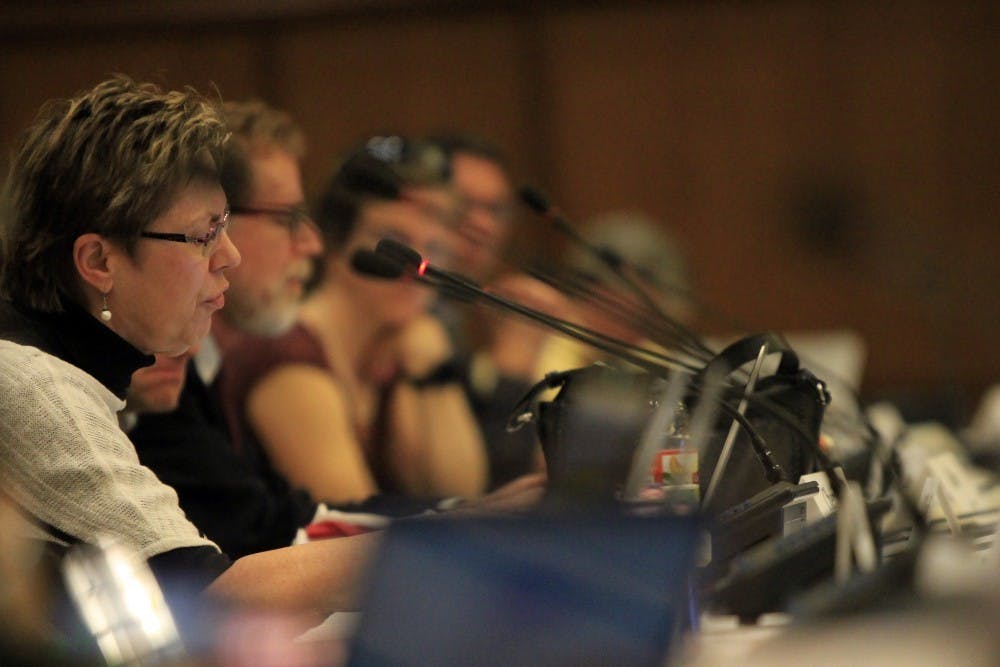The Bloomington Faculty Council had its first meeting for the 2018-2019 academic year Tuesday to discuss student outreach, vote on proposed amendments and examine the trends of students graduating with credits from other institutions.
Student Outreach program introduced in Orange County
The Center for Rural Engagement is attempting to connect IU with rural Indiana communities through a teaching pilot program in Orange County, Provost Lauren Robel said.
The program will include 17 classes, 14 faculty and about 350 students. The classes give an opportunity to gain credit while developing projects for the betterment of rural communities.
“They are things that these communities could not have done in a million years, and the question is how can we take the next step with these communities to ensure that these are not one-off projects, but they are ongoing relationships?” Robel said.
Robel said the goal of this center is to improve Hoosier lives and rural communities.
Robel also announced an upcoming addition to IU Corps, a network of students, campus stakeholders and community partners whose goal is to get more students involved in the community. In an effort to give all students an opportunity to get involved, the database will include volunteer opportunities across the state.
Faculty council approves two amendments to its constitution
In an effort to keep from growing too large, the BFC approved two new amendments to its constitution.
Following the approved amendments of last year, the council was to add 12 new members, but the new amendments will decrease the net growth to only six new members.
The first amendment will implement a decrease in the number of members at-large in the council from 10 to five. This is an effort to maintain an effective size for the council while also maintaining proper representation within the faculty, council member Jon Trinidad said.
The second amendment will decrease the number of graduate student representatives in the council from four to three. This will allow graduate members to continue serving while also keeping the council from growing too large, Trinidad said.
New data suggests increases in credits from outside institutions
The General Education report provided by Dennis Groth, vice provost for undergraduate education, gave members of the council data trends regarding transfer credits.
Groth noted that, on average, students are arriving at IU with more college credits than in previous years. These credits are due to a rise in transfer students, as well as increased high school dual credit classes and AP exams.
Groth also said that 46 percent of IU graduates had transferred credits. One of the reasons for this is the rise in students enrolling in online courses, such as those from Ivy Tech Community College, in order to fulfill certain requirements from IU.
Groth said the General Education Committee will continue to analyze the data they have collected and work with both faculty and students to keep students from going to other institutions for required credits.




